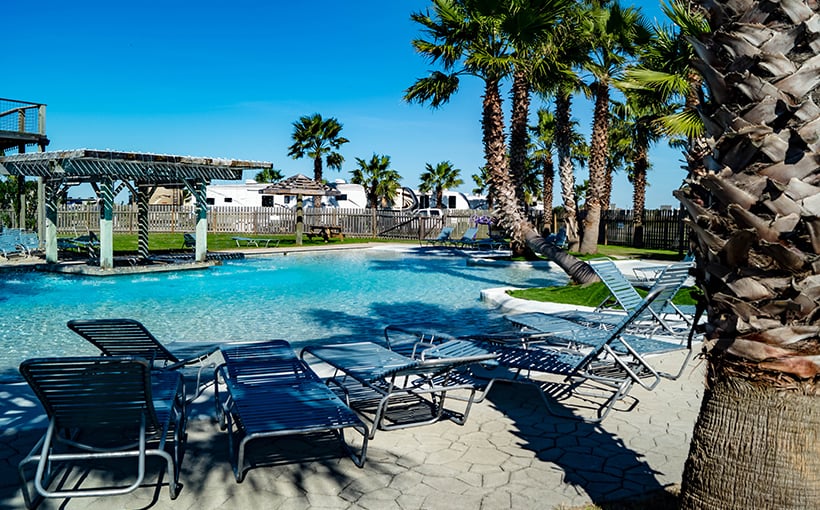After a long day on the highways and byways of the United States, drivers of recreational vehicles need a rest – and they find it at RV parks. For decades, these destinations have ranged from bare-bones (dirt lots with barely defined spaces) to locales offering water and electricity hookups.
In recent years, RV park owners have improved their spaces. These improvements are catching the attention of commercial real estate investors and lenders. Connect CRE reached out to Trez Capital Co-Chief Executive Officer & Global Head of Origination John Hutchinson to get some answers about the increased interest in luxury RV parks.
Q. What, exactly, are RV parks? And what are the factors that put these parks into the “luxury” category?
A. RV parks have been defined as places where people with recreational vehicles can stay overnight or longer in allotted spaces. The parks usually have access to activities, events, entertainment and amenities such as outdoor seating. The individual spaces are typically unpaved or covered with asphalt.
Luxury RV parks provide hotel-style amenities on the property, such as resort-style pools, fitness facilities, full-service restaurants and bars, package lockers, recreational sporting courts, office spaces and dog parks. These types of parks typically offer the same amenities available in most multifamily properties today.
Most luxury RV parks also offer heightened security, including security cameras throughout the facility, individual fencing for each lot and lockable entry gates. They also offer better construction, facility design and utility upgrades than other RV parks, such as 100% concrete paving and individual sanitary sewer hook-ups.
Compared to traditional parks, luxury RV parks are intended for long-term residents. They cater to people who travel around the country, on vacation or short-term workers who travel for their jobs.
Q. Why are these luxury RV parks becoming attractive to commercial real estate investors?
A. The luxury RV parks are piquing the interest of investors due to their superior construction, high-end amenities, and their flexibility to cater to both short-term and long-term stays.
The COVID-19 pandemic and remote work stimulated the rising interest in the RV and travel business as people had more flexibility with where and how they worked. During this time, RV unit sales increased, and this trend has continued post-pandemic.
Because of this, RV parks are no longer just for vacationers. There has been an influx of travelers and workers looking for a flexible environment that provides all the amenities offered in traditional multi-family communities. Remote work trends have continued post-pandemic, allowing individuals the freedom to travel and live outside of where they work.
RV parks are an evolving asset class for investors and are becoming more sophisticated properties, similar to the trend we saw with self-storage properties. These properties have great potential as they transition from mom-and-pop run operations to more institutionalized ownership.
Q. Regarding capital investments, does financing an RV property differ from funding other real estate asset classes?
A. It doesn’t differ significantly compared to other property types. When we finance a project, we always look at costs, cost per unit, returns on cost, and common factors for any lending analysis.
Selecting the right partner is of utmost importance to us at Trez Capital for any project we consider. Provident Realty Advisors is an example of a trusted partner we’ve worked with for many years. In 2023, as a first for both of us in the RV park space, we worked with Provident to develop two luxury RV properties in Texas. Provident is known for its forward-looking approach to finding new opportunities and turning them into successful community developments. We’re confident in their ability to apply this same success to the RV projects we’ve partnered with them on.
Q. What is your outlook on this asset type over the next 12-24 months?
A. A more realistic horizon for this asset type is about five years from now, and the signs are very positive.
Given new travel and work patterns, RV park properties will provide the housing supply these travelers and workers require. Investors should continue to watch the success of new RV park properties as they reach completion, including the two in Texas I mentioned above.
Provident plans to create an RV model and expand it to other locations to generate solid investment returns. Completing these new facilities will provide more insight into navigating the emerging RV park property market and determining the need to adjust and adapt for success.
The post RV Parks: An Up-and-Coming Commercial Real Estate Investment Asset appeared first on Connect CRE.

